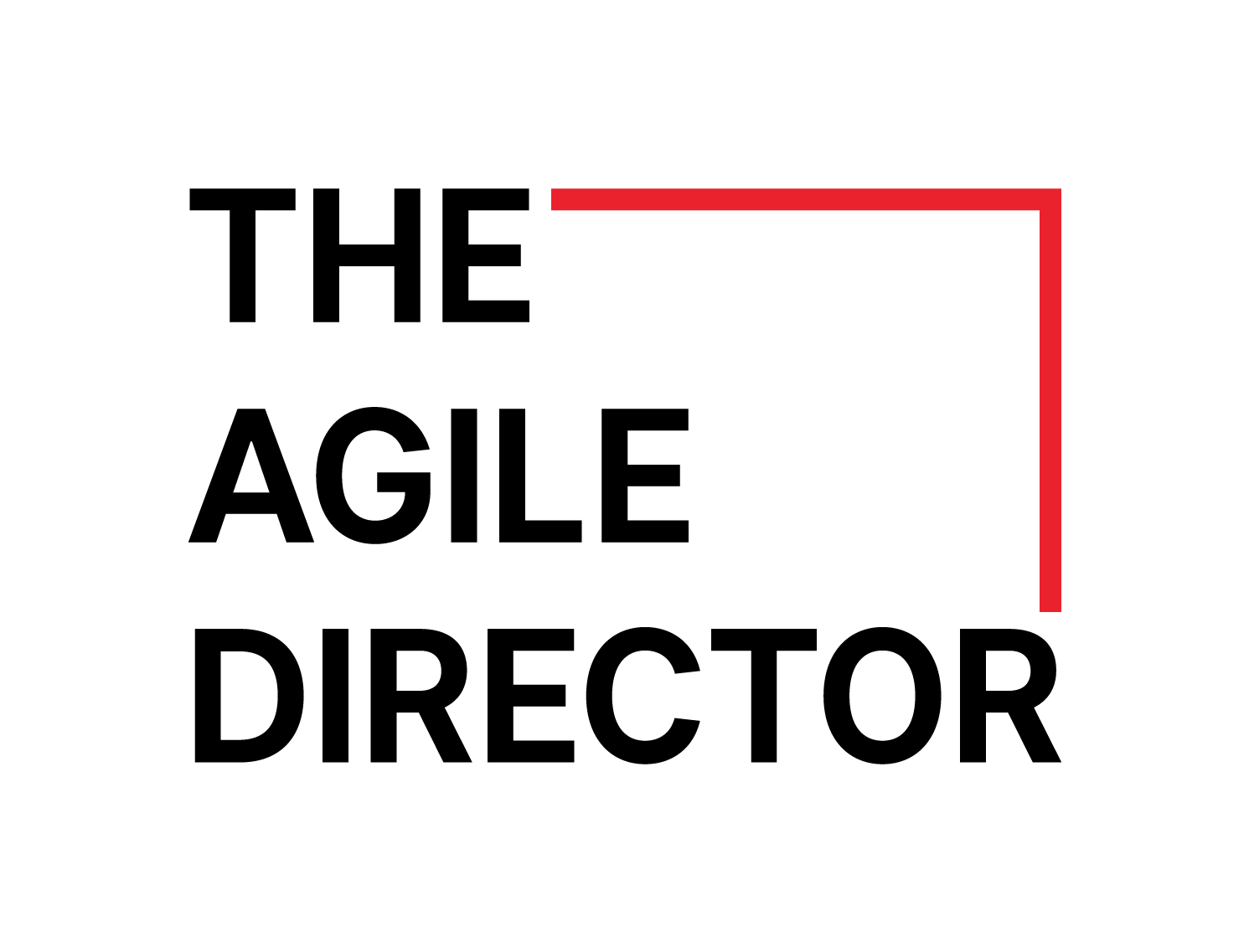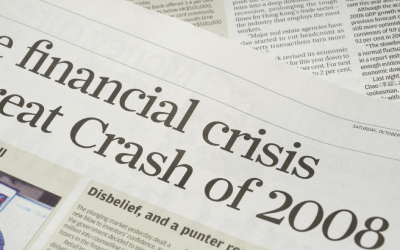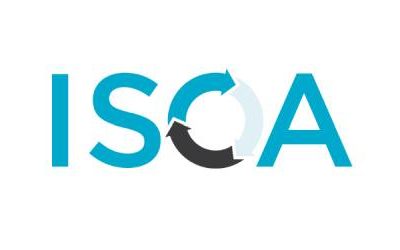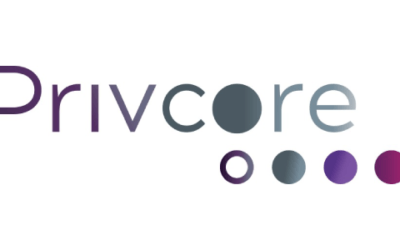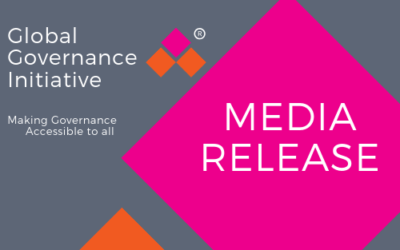Our Blog - The Governance Initiative
The Blog contains selected opinion pieces written by GGI or our partners.3 Ways to Improve Sales Forecasts When the Future Is Unclear
Here are three things boards and management can to do increase the accuracy of their forecasts during uncertain times.
Upgrading Your Strategic Planning Process
Planning is a core activity of every organisation and core to how we operate.
Rather than throwing away your existing process, consider upgrading it with the “Three R’s”: recovery, retooling and resilience.
You can think of this as an additional module to help you level up your existing planning and enhance its effectiveness.
Directors and Boards provide Purpose (S&B)
Boards of directors must take charge in overseeing their companies’ long-term direction and vitality, which means enforcing accountability for issues of purpose, longevity, and social impact.
Associations need to do better on governance: ‘we don’t have this right’ says expert
Association governance expert Damian Mitsch says that association directors often don’t understand that they’re lacking the skills required to do the job – or even what the job should look like – and that introduces a different view of how to govern.
Purpose and Culture
Purpose: Shifting from why to how. What is your company’s core reason for being, and where can you have a unique, positive impact on society? Now more than ever you need good answers to these questions.
Boards of directors in the tunnel of the coronavirus crisis
There are areas that boards and their chairs should prioritize when guiding their organizations through unprecedented uncertainty. Few boards of directors had a playbook for managing the crisis we face today. Now, even fewer have a clear perspective on when and how their organizations will emerge from the tunnel the coronavirus pandemic has forced them to enter. The light at its end is very dim. Uncertainty is high for most sectors and businesses, with boards and management teams struggling to find solid ground, which makes it all the more vital that boards are deliberate about where they focus their attention.
Lessons from 2008 for Management and the Board
Looking back to 2008, the executive and board leadership that did best for their shareholders focused on taking the necessary steps—regardless of then-current popularity with lenders, investors, or otherwise—to preserve their key managers and employees, to maintain liquidity, and to preserve and position the company for recapturing value as the crisis receded, including doing what they needed to in order to remain independent. Simply put, the principled and nimble boards and CEOs did best, often in the face of anxious investors clamoring for more short term fixes or exits.
Ten Considerations for Boards of Directors
Corporate management bears the day-to-day responsibility for managing the corporation’s response to the pandemic. The board’s role is one of oversight, which requires monitoring management activity, assessing whether management is taking appropriate action and providing additional guidance and direction to the extent that the board determines is prudent. Staying well-informed of developments within the corporation as well as the rapidly changing situation provides the foundation for board effectiveness.
We highlight below some key areas of focus for boards as this unprecedented public health crisis and its impact on the business and economic environment rapidly evolves.
IWD 2019 Scholarship recipient Maria Simonelli – one year on
A year after being awarded an inaugural GGI International Women’s Day scholarship, we caught up with author, entrepreneur and creativity consultant Maria Simonelli to discuss how corporate governance training is supporting her career aspirations.
Trading data – the risks of the ‘trust society’
Data collection and use is growing – everywhere from online shopping to refugee camps – and it’s changing the business landscape. While we are trusting that our data won’t be misused, there has been little oversight and few if any consequences for those who breach consumer trust. Recent reform in Australia however is set to provide consumers with a right of action for breaches of privacy.
Thoughts for Boards of Directors in 2020 (Harvard Law School)
In hindsight, 2019 may come to be viewed as a watershed year in the evolution of corporate governance. After years of growing alarm about endemic short-termism, the sustainability and competitiveness of businesses over a long- term horizon, and the role of corporate policies in contributing to socioeconomic inequality, there has been an emerging consensus that the prevailing corporate governance system is broken.
Conflicts and Biases in the Boardroom (Harvard Law School)
Good Goverannce relies on strong board culture, processes, structure and policies that support accountability with focus on long term performance.
At a time when the importance of corporate governance has been firmly settled, we need to better understand how bias impacts governance and be more intentional about addressing it. Perhaps more than at any other time, we are wrestling with subtle “unconscious” biases that are hidden.
A Guide to the Big Ideas and Debates in Corporate Governance (Harvard Business Review)
Ideas about how corporations should be governed vary widely. People disagree, for example, on such basic matters as the purpose of the corporation, the role of corporate boards of directors, the rights of shareholders, and the proper way to measure corporate performance.
57% of boards ignoring digital, despite it being the ‘competitive advantage of our time’
GGI governance expert Andrew Donovan shares why the digital enhancement of boards is an opportunity to create stand-out competitive advantage in an increasingly complex and changing world.
Former PwC partner urges SMEs to get ‘business fit’ before scaling up
By focus on scaling up quickly, ex-PwC partner and Certified Advisory Board Chair Karen Crawford claims that many SMEs can be left uncertain and exposed when things go wrong. Karen suggests a simple̶ business fitness test and has recently partnered with Global Governance Initiative (GGI) to address the need for practical training.
Board Reporting
Play to your audience.
Deliver a career-making performance with these good practice board reporting principles.
Plumbers with leaky taps
As boards grapple with what their contribution to corporate culture should look like they often overlook one of the simplest yet powerful cultural drivers within their grasp: symbolism.
It’s like a plumber with leaky taps. Would you hire him or her to replumb your whole house if they neglected to change a simple washer in their own tap?
The same applies for boards. Boards can mandate values and behaviours – but they lack a mandate when their own symbolic gestures are not yet up to scratch.
Poll finds 49% of CEOs consider boards add ‘very little’ to culture
'Breaking bread' and other simple tips to get your house in order if you're late to the culture party. "Culture...is emerging as the strongest external driver, shaping the biggest change, in recent governance history. It’s a movement too great for any board to...
Scholarship win to support ESG agenda. Ricky Bridge
“With my own career being very focused on the environment and sustainability, formal governance training will help me to improve my knowledge of what good governance looks like and how to influence positive change. This will strengthen my interactions with both board and executive teams, and further support the success of ESG initiatives I’m leading,”
GGI launches governance scholarship
“As a sustainability leader I recognised that the engagement I’d get from the board on important issues would be limited if it was not balanced by strong financial, risk and strategic considerations. Governance training will help me maximise the value of those important conversations.”
Infrastructure Sustainability Council of Australia teams up with GGI
“As the incoming chair, with a reshaped Board, it was important to revisit and refresh our perspectives to ensure we all have a common foundation of understanding from which to take our organisation forward.”
– Alison Rowe, Chair, Infrastructure Sustainability Council of Australia (ISCA)
Every business is a data business: are you prepared to govern it? (Annelies Moens)
Data is a core topic that leaders and managers must be across – and is an essential component of corporate governance. GGI affiliate and privacy expert Annelies Moens shares what you need to know.
RC : Why ‘Purpose’ is paramount – the 5 pitfalls if yours is profit
Purpose is finally being recognised as the foundation of a healthy governance approach with culture vital to sustainable success. But have you ever considered the risks of having the wrong purpose?
RC : Three governance tips your board should be doing right now.
Banking Royal Commission : Three governance tips your board should be doing right now.
It’s clear from the final report from the Royal Commission into Misconduct in the Banking, Superannuation and Financial Services Industry released today, that the connection between governance and misconduct is real. But there are simple steps that every board can take towards good governance. The report investigates three ways that governance and misconduct are related: the role of the board; the entity’s priorities and accountability. Here we take a quick look at each.
RC : How do you eat an elephant? The corporate governance culture challenge.
How do you eat an elephant? Can the big banks really change their corporate governance and culture?
GGI’s governance team examines what changing culture means in the wake of the Royal Commission and looks at another high profile cultural crisis – and how the board responded.
Cricket Australia, royal commissions and corporate governance
With so much attention focused on the financial sector in 2018, it can be tempting for other organisations – particularly NFPs – to think they’re immune because they’re on higher moral ground and will escape treatment.
This is not the case.
Executive pay – an alternative view: Four reasons to see executive pay in perspective
An alternative view on executive pay: Four reasons why it’s ok that execs earn so much more than the average worker.
Social licence to operate
With scrutiny of corporate conduct at an all time high, we look at culture and trust as essential elements of a social licence to operate. We also provide practical tips if you are driving unlicenced.
The upside of AI – understanding the opportunities ahead
Artificial Intelligence (AI) is, or should be, a growing consideration for all businesses. For those who embrace and grow with the change, AI could be the vehicle to drive them forward into a world of exciting opportunities.
Why governance matters and how to get started
The approach to governance education is often abstract, making it difficult for people to walk away with a clear set of actions to implement. People think good governance is hard, when it’s actually common sense.
5 top tips for presenting to the board: rules of engagement for executives
When executives are called on to report or present to their board, they are often thrown in the deep end. Here are the top five tips – not just to survive your board presentation – but to thrive and establish yourself as a reliable and valuable representative of the business.
Directorship – it’s ok to say no
Many executives struggle with the idea that directorship might not be for them. After all, directorship can look like a logical step and is often viewed as the ‘apex’ of corporate achievement. The reality is that a director career may not be right for everyone.
Corporate governance leaders join forces to spread good governance
With a determined focus on ensuring governance knowledge is accessible to all, these governance leaders are taking a fresh new approach to governance education.
New corporate governance training a ‘game-changer’
Governex, our flagship corporate governance courses for executives, directors and boards is now live!
Leading governance resources – where and how you want them.
The Four Ps – a new approach for modern directors
A simple approach for aspiring directors who want to balance prosperity with a positive contribution to society.
The power of ESG investing: why it’s time to take notice
Following many years of observation and deliberation, the jury is in on ESG (Environment, Social & Governance) investing – and the verdict is clear, investors are taking it seriously and so should every boardroom.
